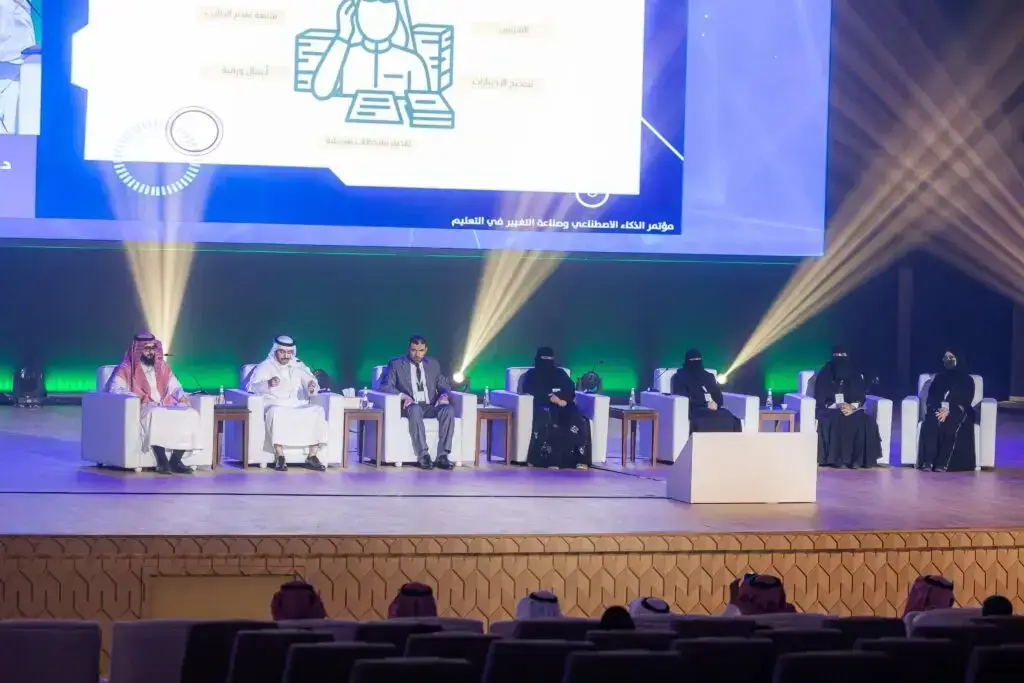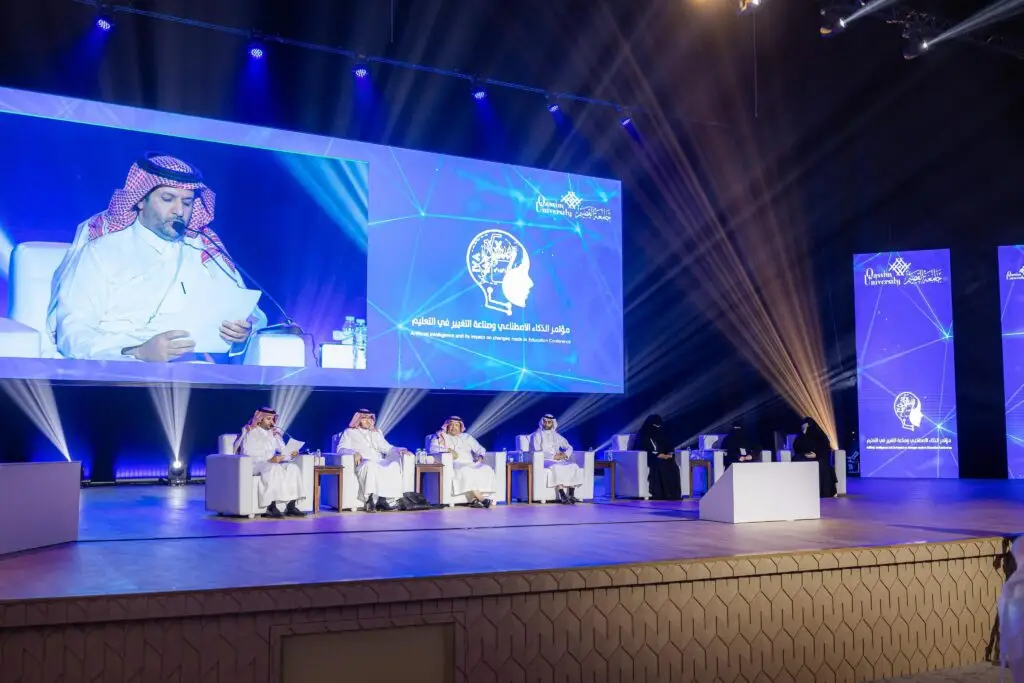Qassim University, represented by the College of Education, concluded the work of the "Artificial Intelligence and Making Change in Education" conference, which lasted for two days at the conference center in the university city, with the participation of a group of researchers and specialists in the fields of education and artificial intelligence technologies.
The organization of the conference comes within the framework of the university's efforts to foresee the future of education, contribute to addressing educational challenges through artificial intelligence, bridge the digital gap, stimulate research activities, and promote the use of smart technologies in line with the Kingdom's Vision 2030 and the national cultural and educational context.
Applied Insights
In the first session, speakers discussed the potential of AI in developing education and scientific research. Theoretical and applied insights were presented, including a paper on the shift from algorithms to classrooms, a study that reviewed the perceptions of faculty members on the use of generative applications, and a research that assessed the impact of these technologies on scientific performance from the perspective of students at Taibah University. Issues of ethical values and controls, the role of AI in developing the professional competencies of female teachers, and the training needs of mathematics teachers in AI environments were also presented.
Towards a smart university administration
In the second session, speakers discussed the role of artificial intelligence in developing administrative systems in higher education, through the theme "Hybrid Learning and Modern Trends for Smart Administrative Systems". A proposed conceptualization of redesigning administrative processes using AI techniques was presented, in order to enhance institutional efficiency and keep pace with the requirements of smart governance and digital transformation in universities.
The Ethics of Artificial Intelligence
The third session focused on the ethical and professional dimension in the use of AI technologies within educational environments. The speakers discussed the need for regulatory frameworks that control the use, protect the privacy of learners, and strike a balance between technological progress and ethical requirements, in order to preserve the role of the teacher and enhance society's confidence in smart education systems.
Improving the quality of learning
In the fourth session, speakers highlighted the use of artificial intelligence in improving the quality of the educational process. One study addressed the importance of adaptive education in providing personalized learning experiences that contribute to raising academic achievement, increasing interaction, and achieving educational justice by taking into account the individual differences between learners.
Future recommendations and research aspirations
The conference came up with a number of recommendations, most notably emphasizing the importance of building effective educational policies that employ AI according to clear ethical standards, supporting the trend towards developing smart educational tools that take into account individual and cultural differences, and strengthening the partnership between educational institutions and technology to develop a sustainable educational system based on artificial intelligence.
 Official government website of the Government of the Kingdom of Saudi Arabia How to verify
Official government website of the Government of the Kingdom of Saudi Arabia How to verify
Links to official Saudi educational websites end with edu.sa
All links to official educational websites of government agencies in Saudi Arabia end with .edu.sa.protocol for encryption and security. HTTPS for encryption and security.
Secure websites in the Kingdom of Saudi Arabia use the HTTPS protocol for encryption.Registered with the Digital Government Authority with no: 20250413538
University
University administration
Other
Administrative
Humanity
pedagogical
scientific
Engineering
Health colleges












